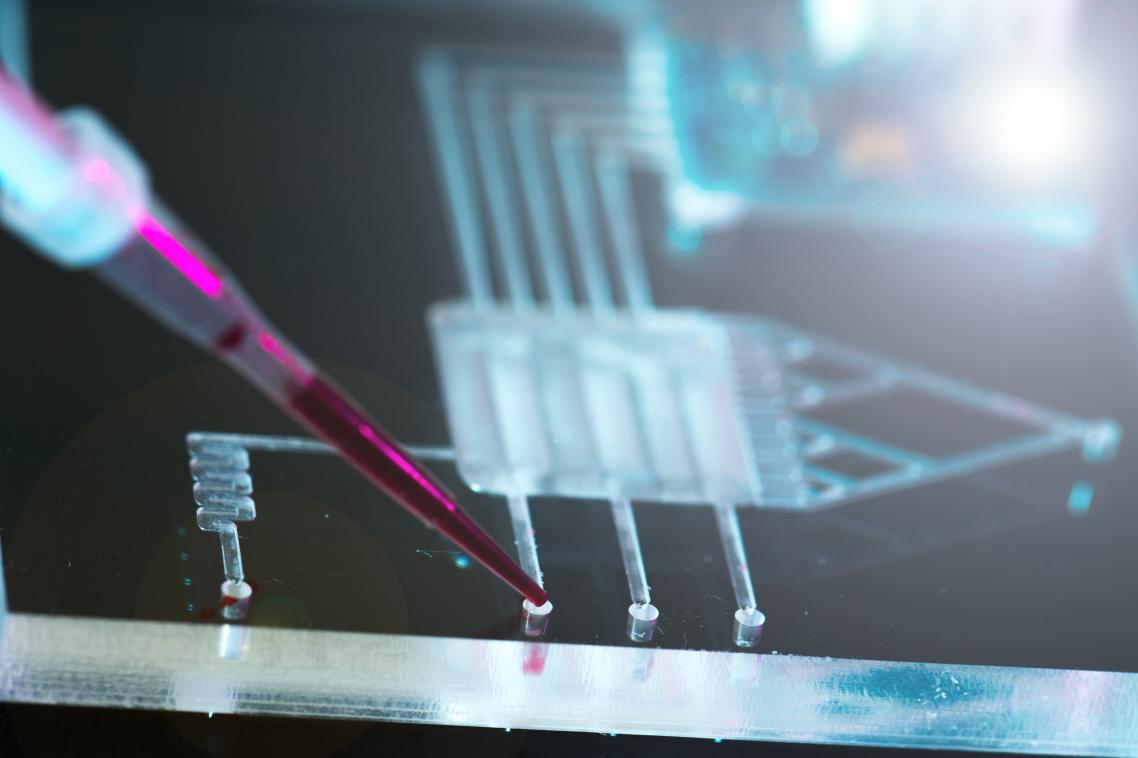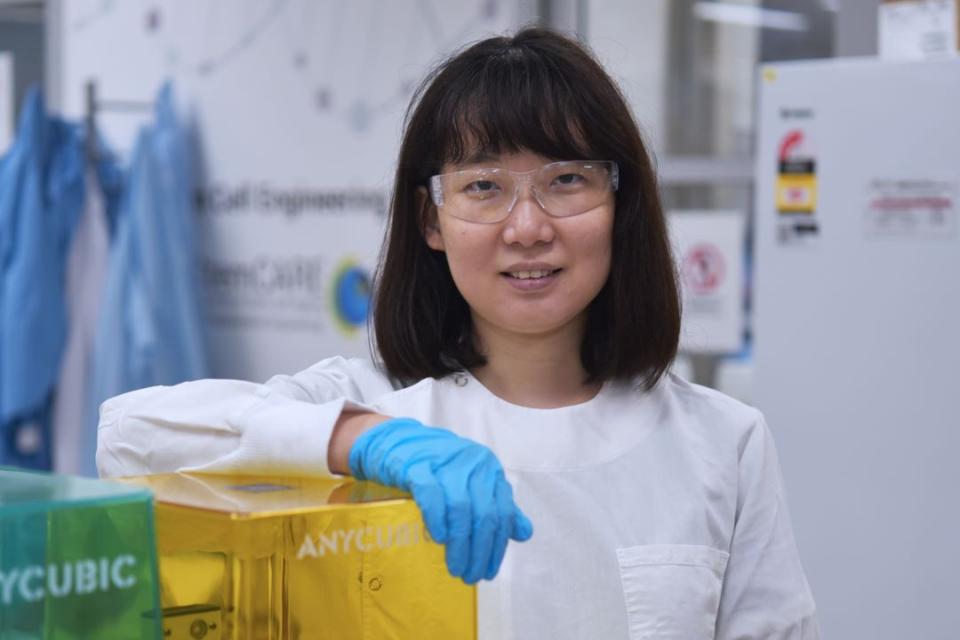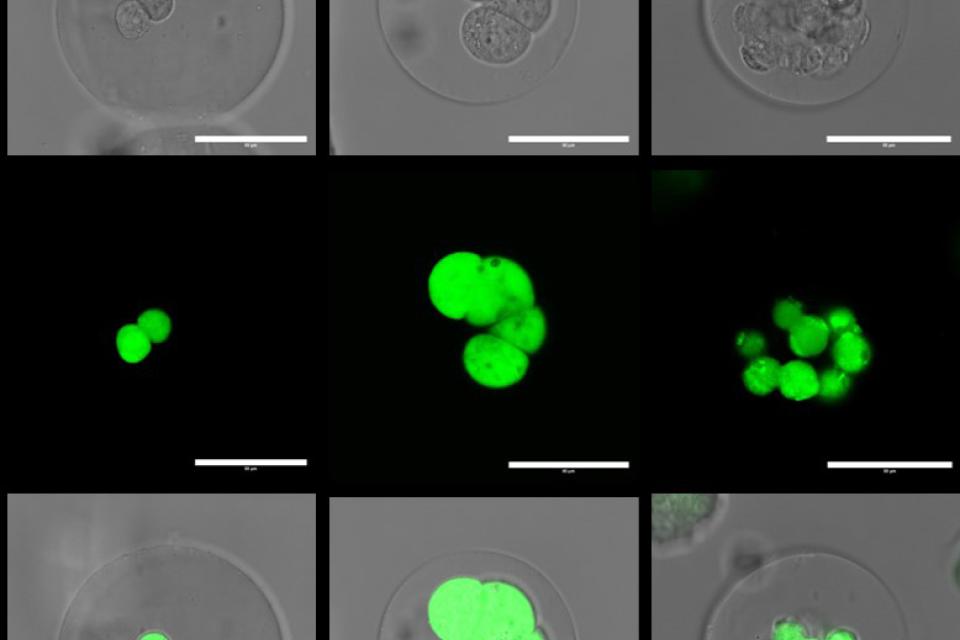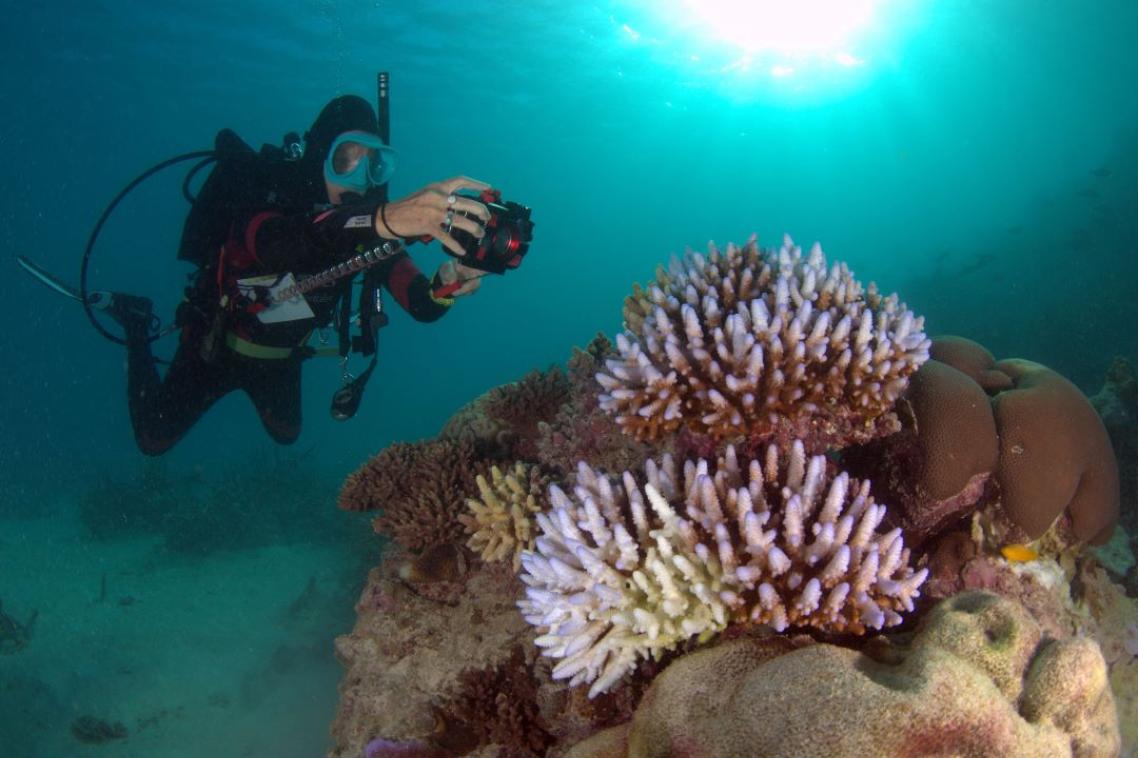UQ tech bringing regenerative medicines closer than ever

(Photo credit: Adobe )
Key points
- Microfluidics tools are used to manipulate liquids and gas at incredibly small scales
- The newly patented UQ-Surf microfludics platform creates thousands of microdroplets a minute, each one a temperature-responsive research environment for exploring tissue engineering and cell therapies
- The global microfluidics market is projected to reach $US41.6 billion ($64.2 billion) by 2028, nearly double what it was in 2023
Tiny gel droplets enhanced with University of Queensland technology could open new pathways to repairing and replacing damaged organs.
Dr Ruirui Qiao and her team at UQ’s Australian Institute for Bioengineering and Nanotechnology (AIBN) have patented a new microfluidics tool that produces ‘smart’ microgel droplets for exploring regenerative medicines.
Microfluidics tools are used to manipulate liquids and gas at incredibly small scales, giving researchers unique control over their chosen materials.

UQ's Dr Ruirui Qiao combines nanotechnology, polymer science, and advanced manufacturing in her research.
Dr Qiao said her team’s UQ-Surf microfludics platform could create thousands of microdroplets a minute, each one a temperature-responsive research environment for exploring tissue engineering and cell therapies.
“In a microgel droplet we can work with materials in ways that would otherwise have been impossible,” Dr Qiao said.
“But it is extremely tricky to create microgels capable of incubating living materials.
“The technology we’ve created greatly simplifies the process - saving time and money – with an added option of changing the droplet’s function by simply changing the temperature.”
Crucially, the microgel droplets fabricated with UQ-Surf technology do not require harsh chemical treatments to make them viable for clinical use, better protecting the sensitive cargo inside.
“The level of control you get with traditional microgel droplets usually comes at a cost – the potential contamination of the living material you’re working with,” Dr Qiao said.
“UQ-Surf removes this risk, because we don’t need harmful chemical demulsifiers or additional processing steps to recover encapsulated microgels.
“We only need to change the temperature.”

UQ-Surf microfludics platform can create thousands of microdroplets a minute.
Dr Qiao said UQ-Surf had the potential to support a diverse range of biomedical applications, including 3D in vitro models for drug screening, targeted delivery of drugs, cells and genes, and advancements in tissue engineering.
The technology has been patented through UQ commercialisation company UniQuest and has already been deployed in the lab, showcasing its market potential.
“The global microfluidics market is projected to reach $US41.6 billion ($64.2 billion) by 2028, nearly double what it was in 2023,” Dr Qiao said.
“Our aim is to play a role in this growth.”
The UQ-Surf research is detailed in Advanced Materials Interfaces.
Collaboration and acknowledgements
The UQ-Surf project included input from AIBN colleagues Professor Tom Davis, Xiangke Li, Dr Helen Forgham, Qiuren Shen, and Dr Liwen Zhang, as well as Dr Dan Yuan from the UQ School of Mechanical and Mining Engineering, Brisbane-based biotech Gelomics, the University of Adelaide, Queensland University of Technology, and the National University of Singapore.Related articles

Thousands of Queensland reef photos lead to worldwide change

Staying physically active cuts risk of early death by 40 per cent
Media contact
UQ Communications
communications@uq.edu.au
+61 429 056 139
